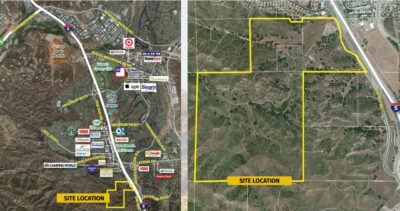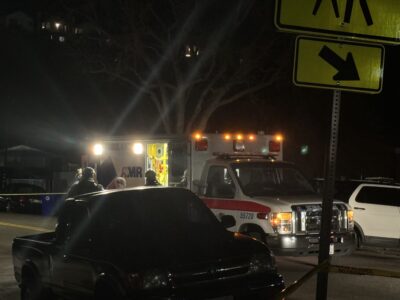Compiled from news service reports
What to Know
• The United States has joined Israel’s attack on Iran by striking three nuclear sites, Fordow, Natanz, and Isfahan, on Saturday.
• President Donald Trump, in remarks late Saturday, said the United States “obliterated” Iranian nuclear facilities key to enrichment.
• U.S. airstrikes on the three nuclear sites involved 75 weapons, including 14 bunker-buster bombs carried by stealth bombers, Chairman of the Joint Chiefs of Staff Gen. Dan Caine said on Sunday.
• U.S. strikes inflicted “extremely severe damage” on the nuclear sites, Caine said.
• Trump, in remarks late Saturday, vowed “far greater” attacks if Iran doesn’t make peace.
• The United States worked as a team with Israel in the strikes, Trump said. Israeli Prime Minister Benjamin Netanyahu thanked Trump for the strikes.
• Responding to the strikes, Iran’s Foreign Minister Abbas Araghchi on Sunday said the United States is “fully responsible” for the consequences of the attack.

Iran’s Key Nuclear Sites ‘Obliterated’
President Donald Trump announced Saturday that the United States had struck Iranian nuclear facilities, putting an end to weeks of speculation about how the White House would respond to the threat posed by a nuclear-capable Iran.
“We have completed our very successful attack on the three nuclear sites in Iran, including Fordow, Natanz, and Esfahan,” Trump wrote in a post on Truth Social.
The move prompted domestic and international reactions.
Trump said during an address to the nation that U.S. strikes had “completely and totally obliterated” three key Iranian nuclear facilities, including Fordow, Natanz, and Isfahan (also spelled Esfahan).
“Tonight, I can report to the world that the strikes were a spectacular military success,” Trump said during a 10 p.m. ET speech from the White House. He was flanked by Vice President JD Vance, Secretary of State Marco Rubio, and Secretary of Defense Pete Hegseth.
“Our objective was the destruction of Iran’s nuclear enrichment capacity and a stop to the nuclear threat posed by the world’s No. 1 state sponsor of terror,” Trump said.
Fox News’ Sean Hannity recounted a conversation with Trump after the strikes, saying Trump informed him that the strikes had made use of 30,000-pound bunker buster bombs. U.S. submarines also assisted.
Trump threatened Iran with “far greater” attacks if the regime refused to make peace.
“Iran, the bully of the Middle East, must now make peace,” Trump said. “If they do not, future attacks will be far greater and a lot easier.”
He added, “There will be either peace or there will be tragedy for Iran far greater than we have witnessed over the last eight days.”
US Worked with Israel
Trump confirmed the United States worked with Israel, taking a moment in his address to the nation to thank Israeli Prime Minister Benjamin Netanyahu.
“We worked as a team like perhaps no team has ever worked before, and we have gone a long way to erasing this horrible threat to Israel. I want to thank the Israeli military for the wonderful job they have done,” Trump said.
“And most importantly, I want to congratulate the great American patriots who flew those magnificent machines tonight and all of the United States military on an operation the likes of which the world has not seen in many, many decades. Hopefully, we will no longer need their services in this capacity; I hope that’s so.
“God bless the Middle East, God bless Israel, and God bless America,” Trump added.
Netanyahu also thanked Trump for the strikes.
“Your bold decision to target Iran’s nuclear facilities, with the awesome and righteous might of the United States, will change history,” he said. “History will record that President Trump acted to deny the world’s most dangerous regime the world’s most dangerous weapons.”
Iran Atomic Agency Vows to Continue Program
The Iranian Atomic Energy Organization said that it will continue development of its “national industry,” an apparent reference to its nuclear development.
Iran’s state-run IRNA news agency early Sunday confirmed that the Fordow nuclear enrichment facility had been struck. The outlet also acknowledged strikes on the Natanz enrichment facility and Isfahan nuclear processing site.
Iranian state media also said early Sunday that there were “no signs of contamination” at its nuclear sites targeted by U.S. airstrikes, per the country’s National Nuclear Safety System Center. The group said no radioactive release had been detected from the strikes.
Foreign Minister Abbas Araghchi responded to the attacks in a post on social media platform X, saying that Tehran “reserves all options” to retaliate.
“The United States, a permanent member of the United Nations Security Council, has committed a grave violation of the U.N. Charter, international law and the NPT [non-proliferation treaty] by attacking Iran’s peaceful nuclear installations,” he wrote.
Israel and the United States, on the other hand, had taken issue with Iran’s non-compliance with its safeguards agreement with the International Atomic Energy Agency and the agency’s inspections to confirm that its nuclear program remained peaceful, which is in violation of its legally binding international obligations under the nuclear non-proliferation treaty.
“The events this morning are outrageous and will have everlasting consequences,” Araghchi wrote. “In accordance with the U.N. Charter and its provisions allowing a legitimate response in self-defense, Iran reserves all options to defend its sovereignty, interest and people.”
The United Nations, Chile, Venezuela and Cuba were among those to condemn the U.S. strikes as a dangerous escalation and violation of international law.
Prior to the strikes, Israel said that Iran could be just weeks away from obtaining a nuclear weapon, while Trump has said Iran was weeks to months away from a nuclear bomb.
The IAEA said on June 13 that Iran had enriched Uranium-235 to 60%, approaching the 90% threshold for weapons-grade nuclear enrichment. IAEA director general Rafael Grossi added on Friday that the agency has “confirmed that Iran does have, even now, enough material for several warheads,” although the material may not be used for nuclear weapons.
A few hours after the U.S. strikes, the Israeli military said missiles launched by Iran toward Israel had been detected, triggering sirens across Israel and Jordan. Explosions were reported in Jerusalem, according to initial reports.
Some Lawmakers Want Congressional Authorization
While some lawmakers have been supportive of Trump’s authorizing the strikes, others want congressional authorization before any additional actions are undertaken.
Striking Iran without Congress’ approval “is a grave violation of the Constitution and Congressional War Powers,” said Rep. Alexandria Ocasio-Cortez, D-N.Y.
“This was unconstitutional,” wrote Rep. Thomas Massie, R-Ky., who had been pushing for requiring congressional authorization to get involved in the conflict.
Rep. Ro Khanna, D-Calif., called for lawmakers to immediately return to Washington to vote on a measure he had introduced alongside Massie “to prevent America from being dragged into another endless Middle East war.”
Vance: Iran’s Nuclear Program Has Been ‘Substantially Delayed’
Vice President JD Vance said he believes the U.S. airstrikes on three of Iran’s nuclear sites on Saturday have set back the regime’s nuclear program.
“I feel very confident that we have substantially delayed their development of a nuclear weapon, and that was the goal of this attack. That’s why it was a success,” Vance said Sunday on NBC’s “Meet the Press.”
When asked how long, specifically, he thinks the strikes have delayed Iran’s nuclear program, Vance said he’s not going to get into sensitive intelligence, but that it is likely many years.
“I think that we have really pushed their program back by a very long time. I think that it’s going to be many, many years before the Iranians are able to develop a nuclear weapon,” Vance said.
“Our goal is that they’re never able to develop a nuclear weapons program, and that is a conversation that we’re gonna have” with the Iranians, he added.
Prior to the strikes, Israel said that Iran could be just weeks away from obtaining a nuclear weapon, while Trump had said Iran was weeks to months away from a nuclear bomb.
Vance said he doesn’t think Saturday’s airstrikes will lead to a bigger war, and that the United States is not interested in sending ground troops.
“We have no interest in boots on the ground,” Vance said. “I don’t fear that this is going to become a protracted conflict.”
He said the B-2 bomber strikes created an environment for a recalibration of relations between the United States and Iran, and suggested there’s still an opportunity for the regime to return to negotiations about its future.
“We want to end their nuclear program, and then we want to talk to the Iranians about a long-term settlement here,” Vance said. “This is a reset. This is an opportunity for the Iranians to take the smart path. We certainly hope that they will.”
Hegseth: US Does Not Seek War with Iran
Defense Secretary Pete Hegseth said the United States is not seeking war with Iran after Saturday’s strikes.
“As President Trump has stated, the United States does not seek war,” Hegseth said during a Sunday Pentagon press briefing. “Iran should listen to the president of the United States and know that he means it, every word.”
When asked if the United States was getting into another “open ended war in the Middle East over weapons of mass destruction,” citing President George Bush’s decision to invade Iraq in 2003, Hegseth said Trump made it clear that the airstrikes on Iran’s nuclear sites were not an open-ended military campaign.
“What the president gave us, as I said, was a focused, powerful and clear mission on the destruction of Iranian nuclear capabilities. Those were the targets. That’s what was struck,” Hegseth said. “That’s what the Iranian regime needs to understand.”
He added that Trump wants peace and that Iran needs to negotiate a settlement.
“We ultimately demonstrated that Iran cannot have a nuclear capability. That is a very clear mission set on this operation,” he said.
Hegseth: Congressional Leaders Notified After US Planes Left Iran
When asked if congressional leaders were notified of the U.S. airstrikes, Hegseth said lawmakers were debriefed “immediately” after U.S. aircraft had left Iranian airspace.
“They were notified after the planes were safely out. We complied with the notification requirements of the War Powers Act,” Hegseth said.
Hegseth said the United States was not looking to topple the Iranian regime.
“This mission was not, and has not, been about regime change,” Hegseth said. “The president authorized a precision operation to neutralize the threats to our national interests posed by the Iranian nuclear program, and the collective self-defense of our troops and our ally Israel.”
Gen. Caine Says Damage to Iranian Nuclear Sites ‘Extremely Severe’
Gen. Dan Caine, the chairman of the Joint Chiefs of Staff, described the extent of the damage inflicted on Iranian nuclear sites during Saturday evening’s airstrikes.
“Final battle damage will take some time, but initial battle damage assessments indicate that all three sites sustained extremely severe damage and destruction,” Caine said during the Sunday Pentagon press briefing.
The United States sent B-2 Bomber strike teams to hit Iran’s Fordow, Natanz, and Isfahan nuclear sites with bunker-buster bombs, or massive ordnance penetrators.
“Our forces remain on high alert and are fully postured to respond to any Iranian retaliation or proxy attacks, which would be an incredibly poor choice,” Caine said. “We will defend ourselves. The safety of our service members and civilians remains our highest priority.”
Caine said the B-2 bomber strike contained 14 massive ordnance penetrators, known as bunker-buster bombs.
The campaign, called Operation Midnight Hammer, involved sending part of the package of B-2 bombers toward the west and into the Pacific as a “decoy” and “deception effort,” he added.
Caine said the airstrikes on three Iranian nuclear sites involved 75 precision weapons in total, including the 14 bunker-busters.
“More than 125 U.S. aircraft participated in this mission, including B-2 stealth bombers, multiple flights of fourth and fifth generation fighters, dozens and dozens of air refueling tankers, a guided missile submarine, and a full array of intelligence surveillance and reconnaissance aircraft, as well as hundreds of maintenance and operational professionals,” Caine said.
He added that he is not aware of any shots fired at the U.S. strike package.
Hegseth said it was the longest B-2 Spirit Bomber mission since 2001.
It was also “the first operational employment of the MOP, a massive ordinance penetrator,” Hegseth said.
He added: “When this president speaks, the world should listen. And the U.S. military, we can back it up: the most powerful military the world has ever known.”
Jacob Burg, Melanie Sun, Ryan Morgan, Emel Akan and Joseph Lord contributed to this report.








